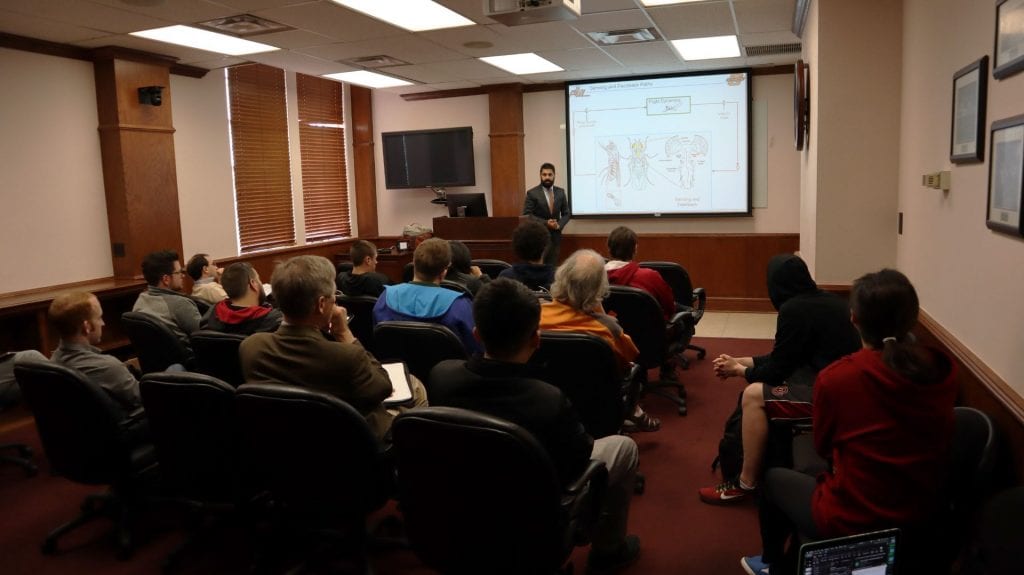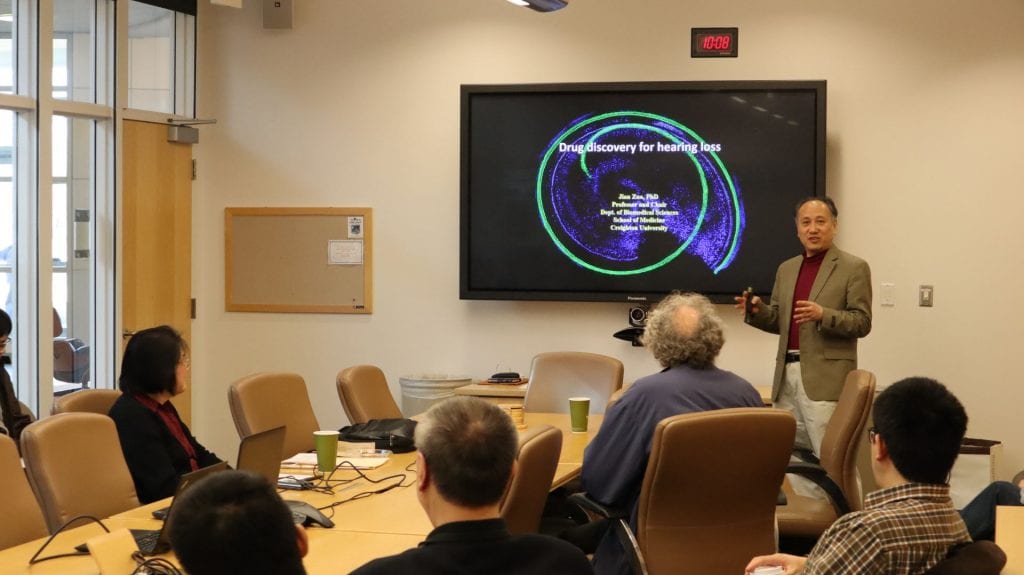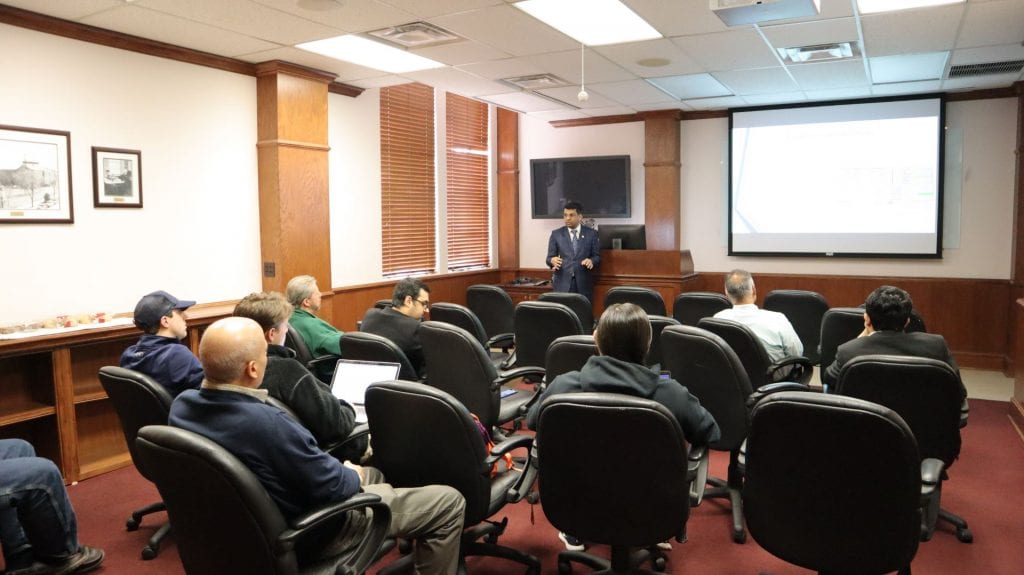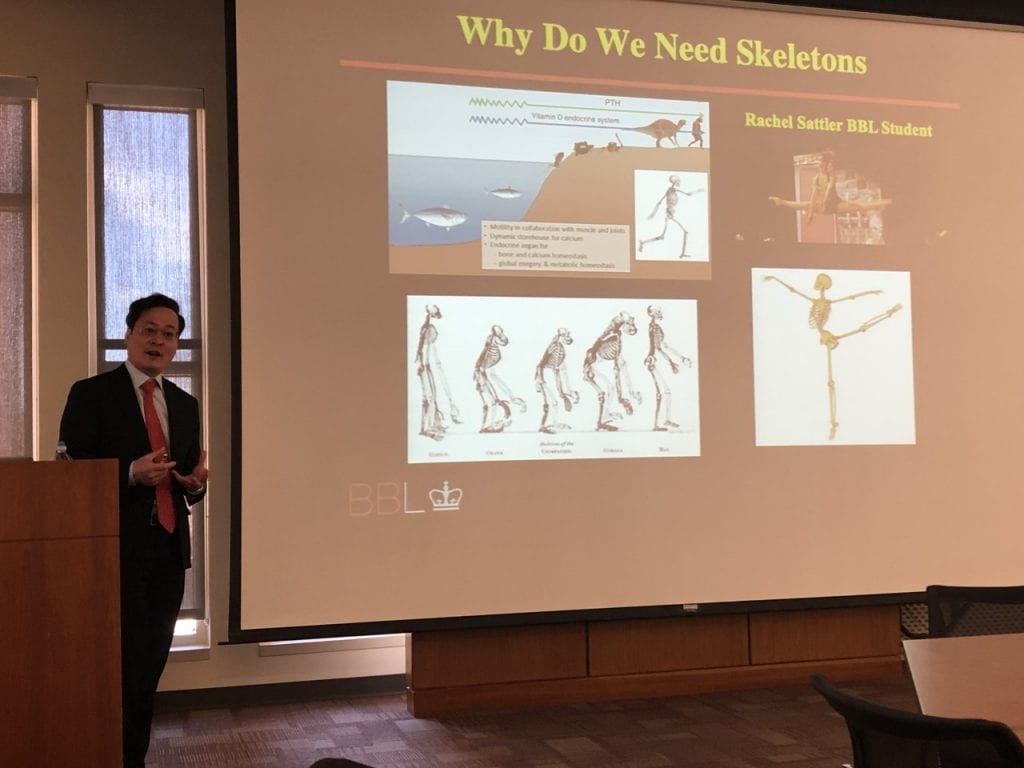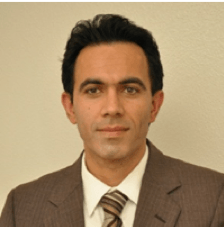Imraan Faruque, Ph.D., gave a presentation on Monday, March 25, 2019 on how biologically-driven flight control strategies can inform unmanned aerial vehicle swarms. Dr. Faruque is an assistant professor for the Department of Mechanical and Aerospace Engineering at OSU.
Abstract: This seminar introduces a framework for deriving feedback design principles that can enable insect-based flight control approaches on unmanned aerial systems (UAS) and engineered extensions to groups of UAS. The seminar begins by establishing flight dynamics models of dipteran flapping wing insects, combining automated high-speed videography measurements of freely flying insects, experimental aerodynamics results, rigid body dynamics, and system identification techniques to distill high fidelity flight dynamics models into computationally-tractable models applicable to flight control analysis. Methods to extract models of the closed loop controllers implemented on insects from free flight trajectories are discussed. Linear matrix inequalities are applied to interpret the controllers into design principles that can translate the extracted controllers into those appropriate for engineered vehicles, and improvements in experimental techniques to quantify multi-agent aerial insect behaviors. Control-theoretic definitions of reachability are applied to the aerodynamic mechanisms involved in insect-scale flight control and gust response, leading to a theoretic framework for the gust response properties of closed-loop flight control and the engineered design of gust-aware flight controllers.
Biography: Imraan Faruque’s research interests include reduced-order models of complex systems, biologically inspired locomotion and control systems, unmanned aerial systems, and flight dynamics and control. Dr. Faruque’s specialization is in dynamic models of flying insect feedback, and in reduced order flight dynamics models that can concisely capture the dynamic properties of insect flight control, where his work has led to over 40 publications, including numerous best paper awards and patents. Dr. Faruque is currently an Assistant Professor at Oklahoma State University’s Department of Mechanical and Aerospace Engineering, with an appointment as Assistant Research Professor in the University of Maryland’s Department of Aerospace Engineering. He is an honors alumnus of Virginia Tech, and received his MS (2010) and Ph.D. in Aerospace Engineering in 2011 from the University of Maryland. He previously held research positions at the Army Research Lab, the Air Force Research Lab, and at General Electric Aircraft Engines.
